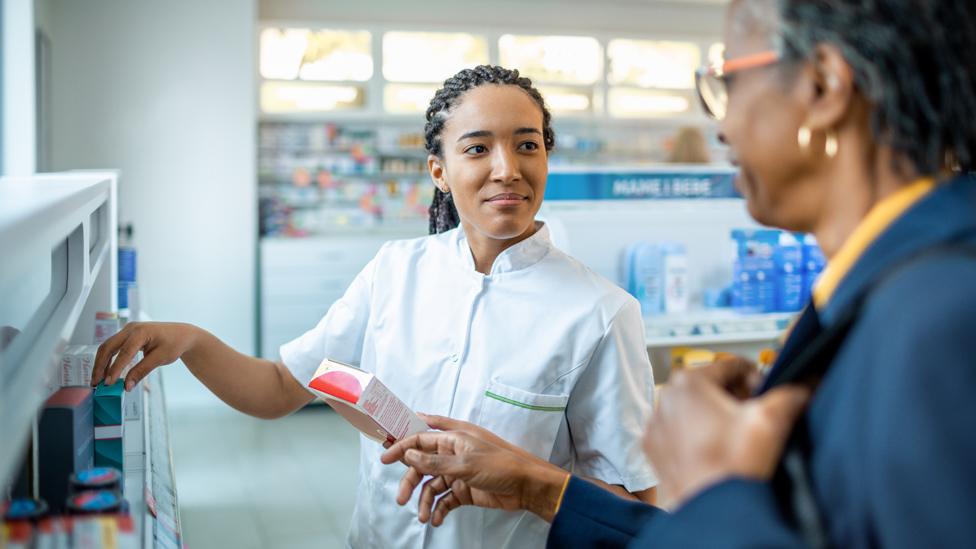Pharmacists begin prescribing drugs to free up GPs
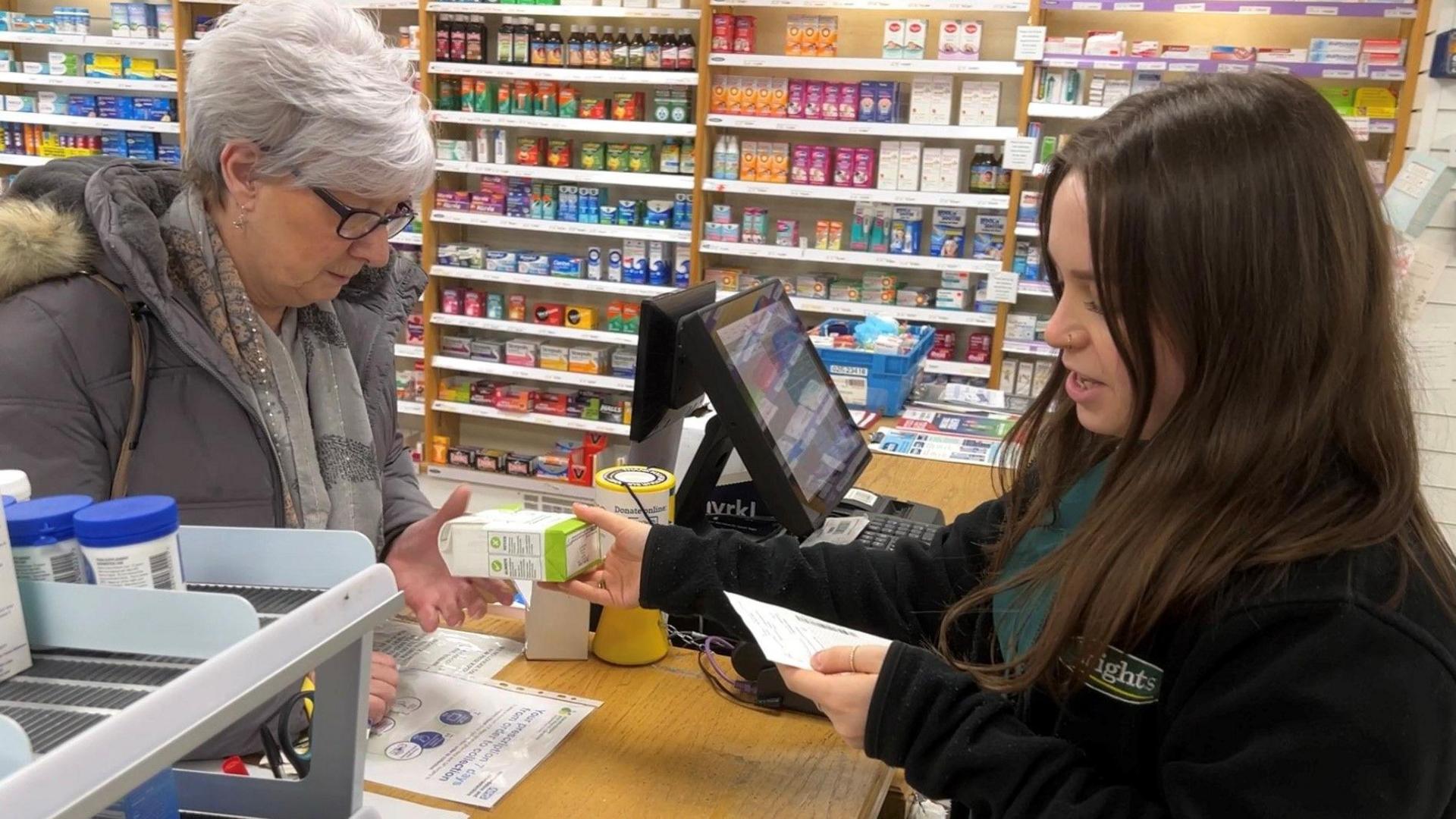
Knights Pharmacy in Headless Cross, Redditch, is one of more than 10,000 pharmacies across England to offer the new service
- Published
Patients in Herefordshire and Worcestershire can now get medication for seven common conditions at their local pharmacy, without needing to see a GP.
More than 90% of community pharmacies in the two counties have joined NHS England’s Pharmacy First scheme, which aims to ease pressure on doctors.
Rather than having to see a GP, patients will be able to contact their pharmacist directly, for illnesses including shingles and sore throats.
But pharmacists have warned the sector faces financial and staffing pressures.
“I definitely think it’s going to allow me to use a lot more of the skills I learned at university,” said Allie Helouin, a pharmacist at Knights Pharmacy in Headless Cross, Redditch.
“Practically, I’ll probably be spending more time in the consultation room face-to-face with patients… diagnosing minor illnesses and trying to work out which medication works best".
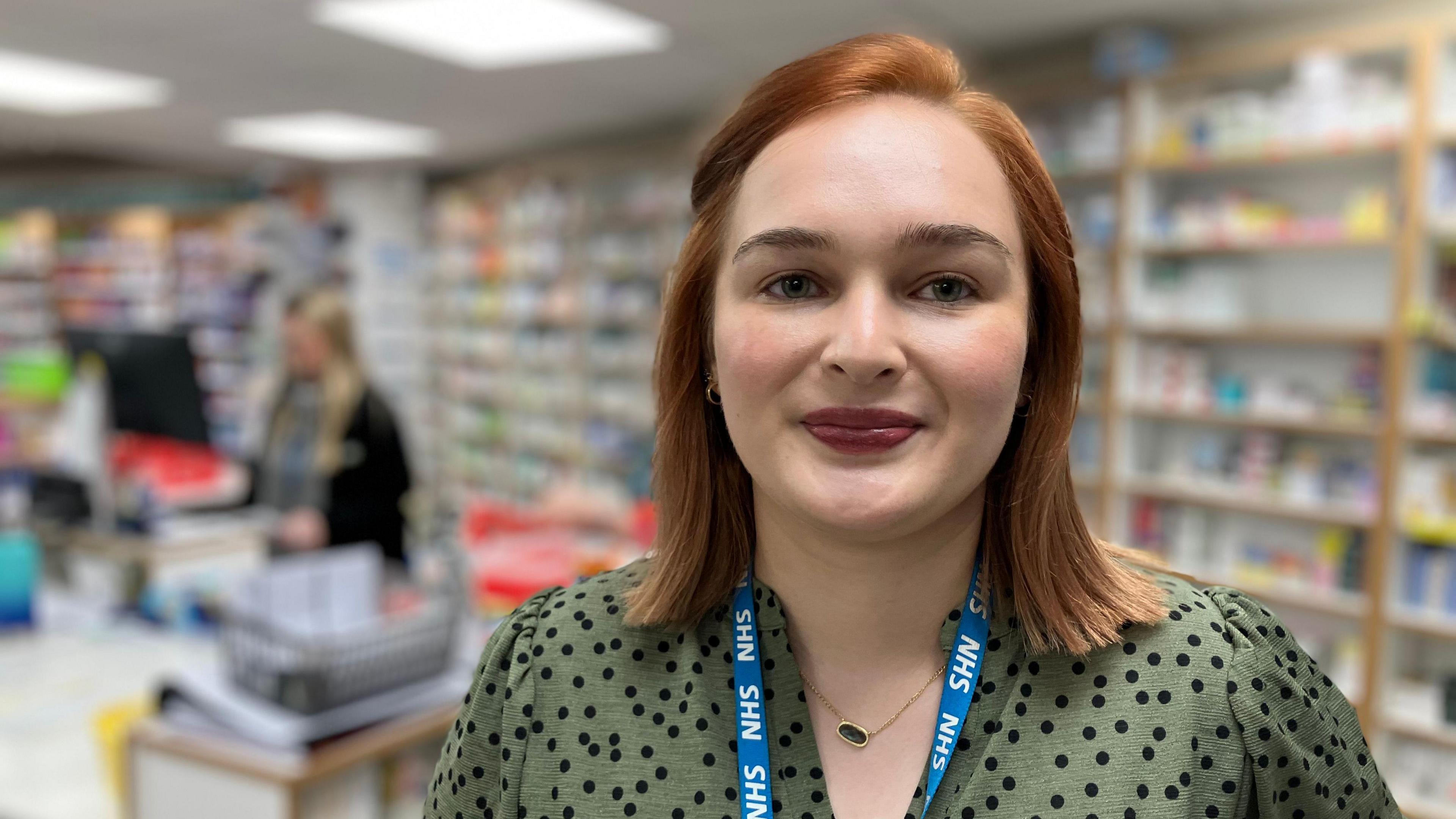
Pharmacist Allie Helouin at Knights Pharmacy in Headless Cross said she would enjoy more face-to-face time with patients.
Under the Pharmacy First scheme, pharmacies taking part will take on the prescribing of drugs for seven common ailments:
earache
sore throat
sinusitis
impetigo
shingles
infected insect bites
uncomplicated urinary tract infections in women
Along with the expansion of contraception and blood pressure services, the new pharmacy services are expected to save up to 10 million general practice appointments a year, according to NHS England, external.
“We’ve seen quite an increase in demand since Covid,” said Dr Laura Handscombe, a GP at Hereford Medical Group, which has already piloted handing local pharmacists some extra responsibilities.
“So anything that can get patients the right service quickly, without taking up extra appointments is really helpful to us".
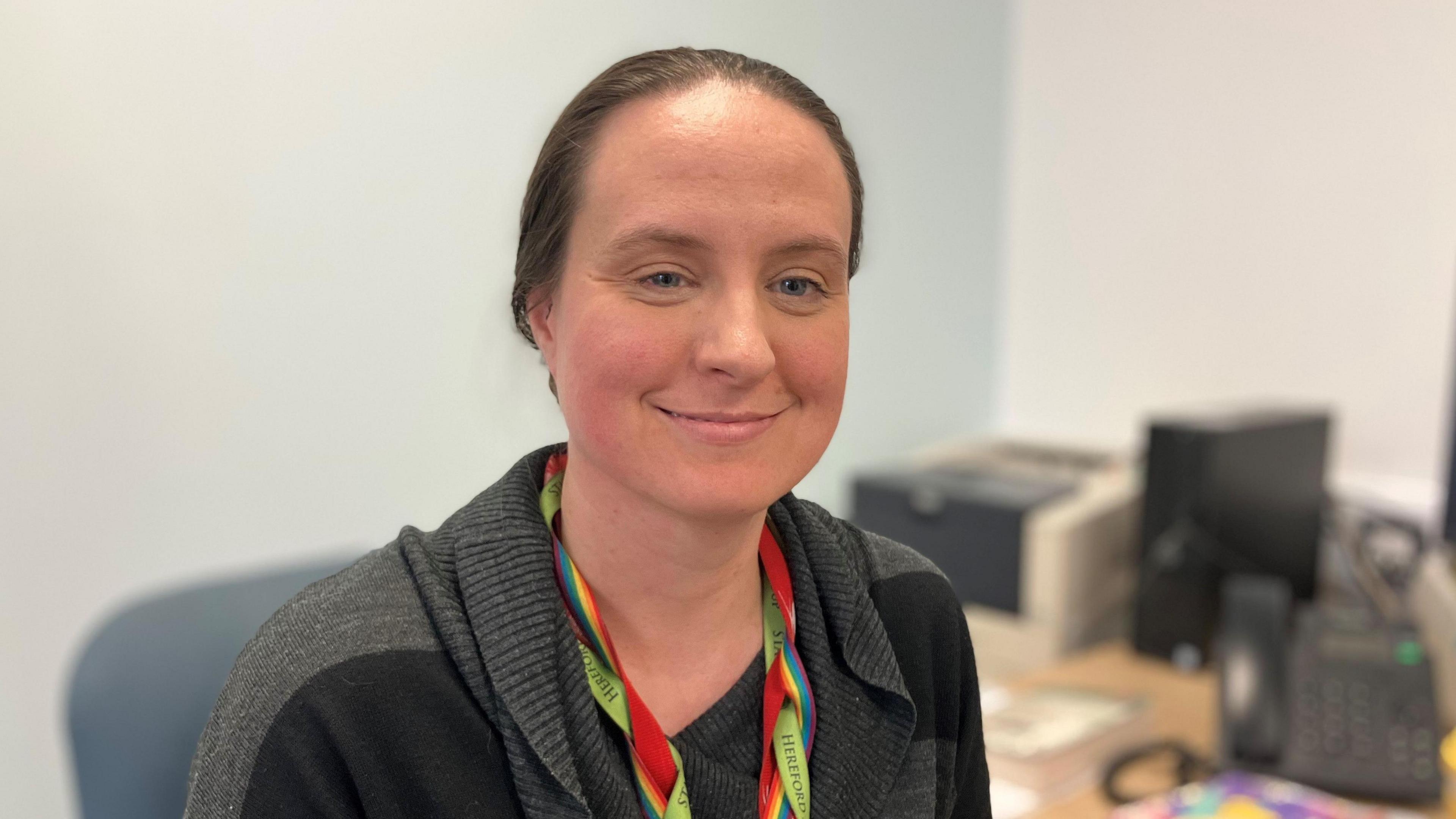
Dr Laura Handscombe from Hereford Medical Group said the initiative would free up GPs' time
But some pharmacists have warned their sector faces major pressures, including in the recruitment and retention of staff.
Between March 2022 and March 2023 the number of pharmacists in Herefordshire and Worcestershire dropped by 18%, from 117 to 96, according to data held by the area’s integrated care board, external.
Financial pressures are also forcing some chemists to close.
Five years ago, Church Street in Great Malvern had three separate pharmacies.
By the end of February its last one will have shut.
“Although we are pleased that Pharmacy First has launched, the additional funding provided is mostly offset by the additional time,” said Matt Webster, head of retail operations at Peak Pharmacy, which operates the remaining branch.
“Our funding from the NHS has been frozen for 5 years while costs, demands and expectations have continued to rise."
While pharmacies will remain open in other parts of Malvern, customers have expressed their disappointment.
“Every month I have to pick up my injections from there,” said Christine Jones, a regular customer who has rheumatoid arthritis.
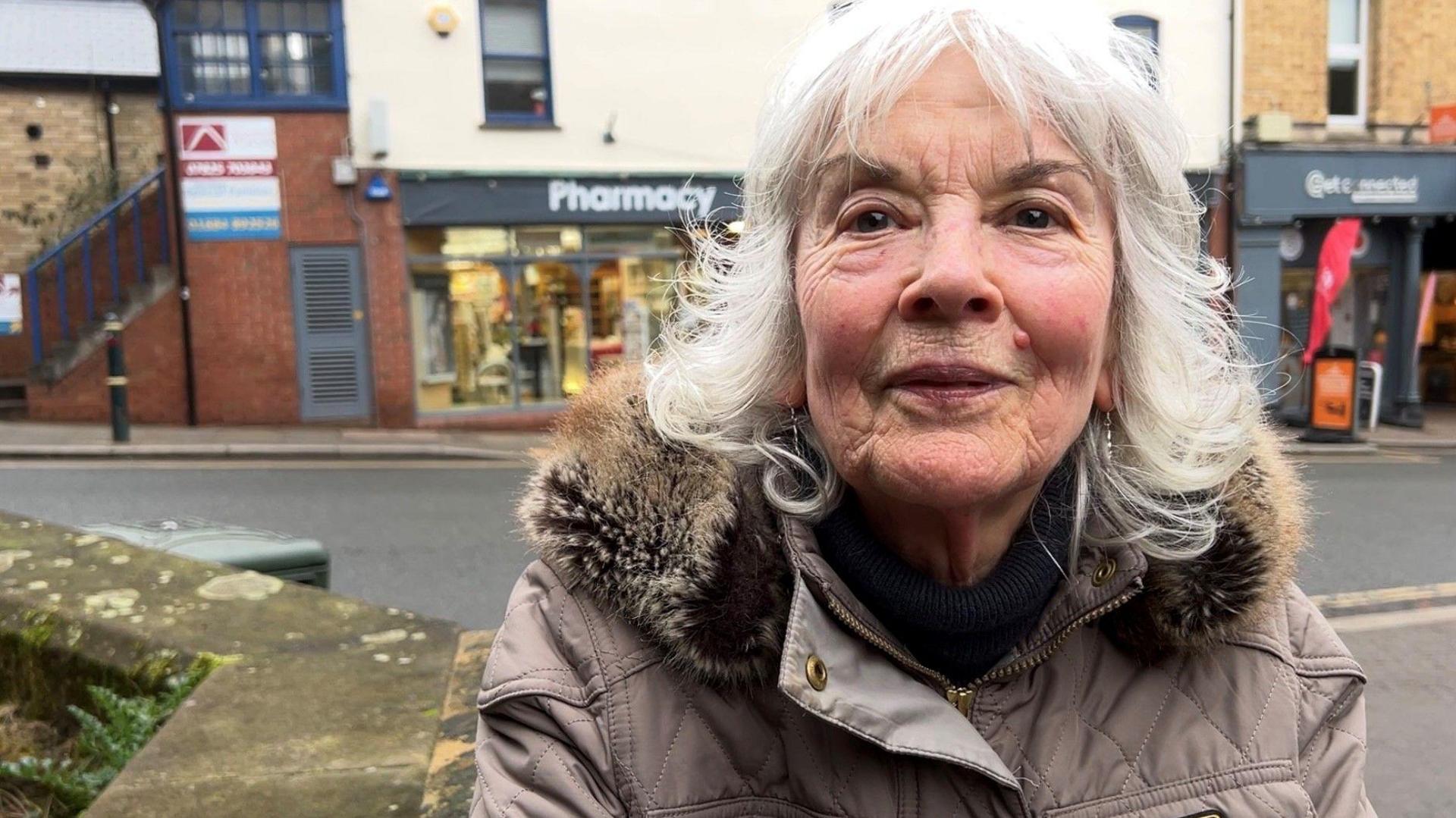
Peak Pharmacy customer Christine Jones said it was crucial a chemist remained on Great Malvern's high street
“It’s very, very important that the town’s high street has a chemist. For anybody who’s got mobility issues, it’s so important," she added.
Peak’s closure has prompted West Worcestershire’s MP, Harriett Baldwin, to call for a review of Malvern’s pharmacy provision by the NHS.
"The formal review of services... doesn't take into account local considerations like the steepness of the hills in Malvern, or the challenges in accessing public transport,” the Conservative MP said.
“I’m worried about the patients who will now have to identify a new pharmacy".
NHS Herefordshire and Worcestershire said it was working closely with community pharmacies to develop its existing workforce.
Follow BBC West Midlands on Facebook, external, X, external and Instagram, external. Send your story ideas to: newsonline.westmidlands@bbc.co.uk, external
Related topics
More on Pharmacy First
- Published16 November 2023

- Published9 May 2023
